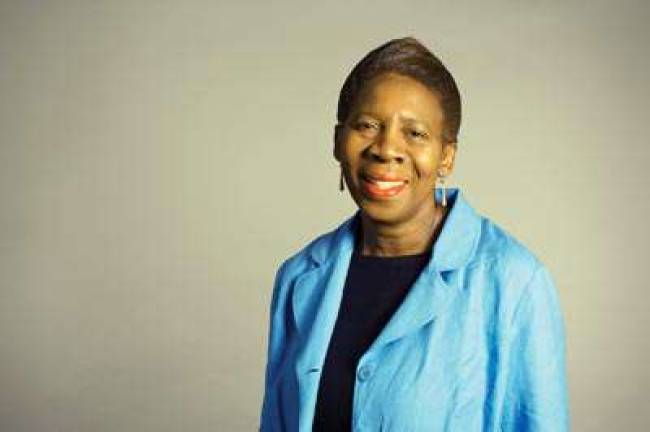Using Life Experience to Get Health Care Jobs

By Laura Shin Carmelita Blake is a clinical associate professor of health care management and the coordinator of health administration and health care management at NYU's School of Continuing and Professional Studies. She spoke with Manhattan Media about education. What is health administration and health care management? What types of jobs do these programs lead to? Depending on their area of interest, students have a choice between community health, health advocacy or long-term care. For those students interested in long-term care, the areas where they would seek employment are nursing homes, assisted living facilities or there are some day-care programs for older adults. It could be a program that focuses on specific diseases, like Alzheimer's, or people with other forms of dementia. For those students with a concentration in community health or health advocacy, those students usually get positions in hospitals or diagnostic centers or freestanding, community-based ambulatory centers. And then there are students who will get positions in hospitals, in a variety of departments. These could include patient relations that some hospitals refer to as customer service-they have different names. Some students get jobs in ambulatory care in a hospital-based setting. They are employed in many departments where they work as an assistant to other higher-level managers that manage areas like clinical services. And then we have some students who obtain positions at the YAI, the Young Adult Institute, where they provide services for individuals for a variety of disabilities, or the Cancer Society or American Heart Association. What degrees are offered? There is an associate's program as well as a bachelor's program. For the associate's program, students are required to take fewer credits and they don't have the breadth of courses that are offered for the baccalaureate degree. Those students, depending on their prior experience, can also get jobs in a variety of settings. Most of our students have some experience in health care. There are few that don't. For some, it's a career change. How does someone become a student? For those individuals who are career changers, we do have students who previously attended college but didn't get a degree and we have a lot of those students who come back, and then we have students in addition to that, who can apply for what we call "life experience credits" and they attend a seminar and write a portfolio. If they have life experience that we can somehow match with a course that they'd be required to take, they would write the portfolio and upon acceptance of the portfolio they would get the credits for a specific course or courses. Does a student have to have experience in health care in order to obtain the life experience credits? Not necessarily. Let's say we get somebody who worked in humanresources, and they are required to take a human resources course, so even though it may not have been in health care, they could petition to write a portfolio. Let's take a person who worked in any industry, where they did customer service management-they could petition for the customer service in health care course. If we've got someone who has been working in accounting or financial management, and they can demonstrate to us that they have the skills that are necessary, they can write a portfolio for that. Who are your current students? Our age demographic has changed. We're getting younger people in their twenties and thirties. The predominant age range is between 30 and 40, but we do have quite a few students now who are in their twenties. Why is this a good option for someone changing careers? According to the Bureau of Labor Statistics, health care is one of the areas where there will be growth. And as the Affordable Care Act gets implemented, it will grow. We have students who work in finance in a variety of settings in health care and we also have some students who are into computers; one of the areas that the Affordable Care Act is actually going to increase numbers in is information systems management, and our students do take a computer course. One of the reasons we say our degree can really help, is that students who have experience in information systems management are very marketable in the health care industry right now. How do you help students find jobs? We have a career services office, but they don't really help students find a job. They help students with what I call "starting the process": They'll help them write a résumé, they'll teach them interview skills and they do have career fairs for students. We do have a board online where they post whatever positions are sent in to the university. How long does it take to complete the degrees? It varies. For students who transfer with prior college credits and for those students who are eligible and do have the life experience credits, it varies. So some people come, they complete in two years, based on what they came with and what they're able to get. Some students have finished within three years. Some students need four or five. The average is three to four, because many come with college credits. For those who don't, many are able to get prior learning experience credits. What else would you tell prospective students about the program? Well, we are very student-centered-we offer all types of academic support for those students who have not been attending college for a while, and we do have advisers available to meet with individuals who are interested in applying.